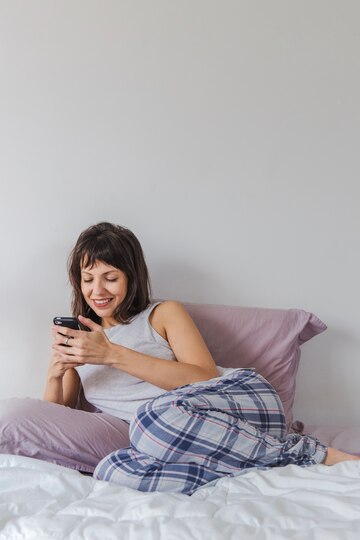You’ve likely heard that blue light from smartphone screens may be keeping you awake at night. While the sun is our main source of blue light, the rise of LEDs and screen use exposes us to artificial blue light in the evening. Blue light suppresses melatonin, a hormone we naturally produce to help us drop off at night. Therefore, blue light can make it harder to fall asleep Blue Light Panic off the blue-light screen panic remains the best evidence for light-emitting devices affecting sleep. It found screen use before bed delayed the onset of sleep by an average of 10 minutes. It’s not much, but any increase in sleep latency (the time it takes to fall asleep) is unwelcome. Sleep and circadian responses to light are dependent upon intensity (the brighter the light, the bigger the response While screens are getting brighter, they are still relatively weak compared to the sun. Even LED bulbs are much brighter than screens. If you are concerned about melatonin suppression, the evidence suggests electrical lighting in the home is more dangerous than screens. Causation or Correlation However, while the blue light from smartphone screens is unlikely to be bright enough to cause significant issues, that doesn’t mean it’s a good idea to tuck up with a cozy smartphone at bedtime. Can Blue Light Glasses or Filters Help Blue light has a shorter wavelength (between 400 and 495 nanometers) than red light (620 to 750 nanometers). But different filters block different wavelengths, making them tricky to compare. Pierson says cutting off longer wavelengths can be more effective at reducing light exposure to our circadian rhythm (our natural sleep/wake cycle), but can also impact visual function, making it harder to see. Kids are more sensitive to blue light, so any potential impact could hit them harder, but another clue that blue light may not be the issue is the differing impact of interactive screen versus passive screen use. Chilling out in front of the TV, or even reading on your phone, is more relaxing than playing a video game or messaging in a group chat, even though blue light exposure is the same. Lights Out If you are concerned about getting a good night’s sleep, establishing a bedtime routine is crucial. The intervention with the strongest evidence base is cognitive behavioral therapy for insomnia Wake up at the same time every day. Use a sleep diary to monitor your sleep patterns. Don’t get into bed unless you’re sleepy. Get out of bed when you’re not sleepy. Use cognitive techniques to address the racing mind, such as mindfulness, journaling, and cognitive reframing.
Thank you for reading this post, don't forget to subscribe!Smartphones May Affect Sleep But Not Because Of Blue Light



